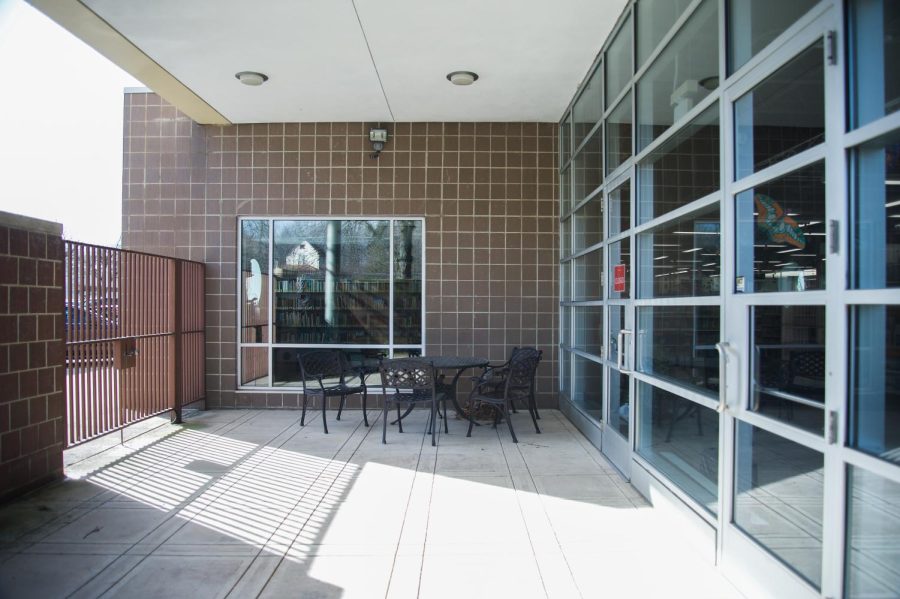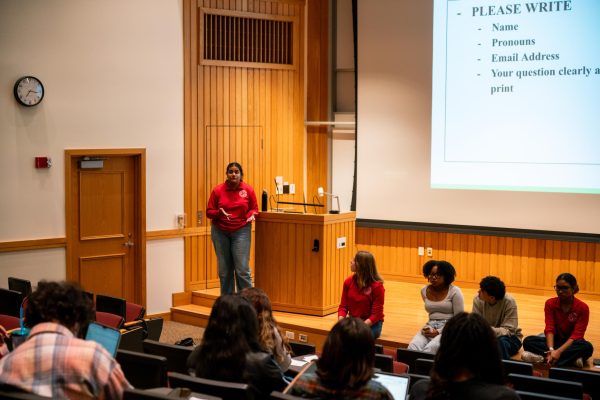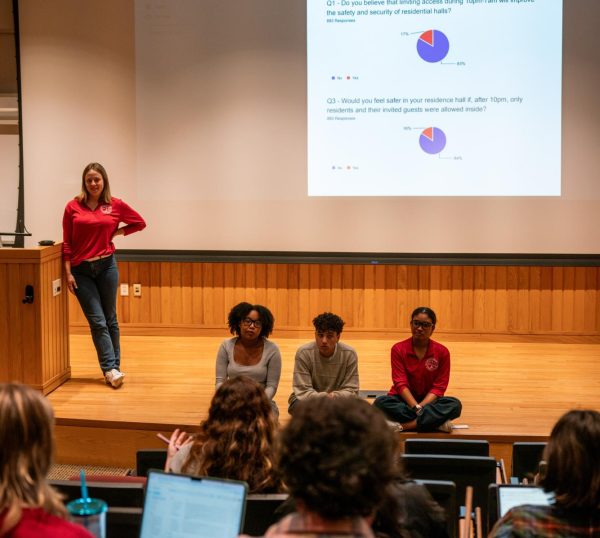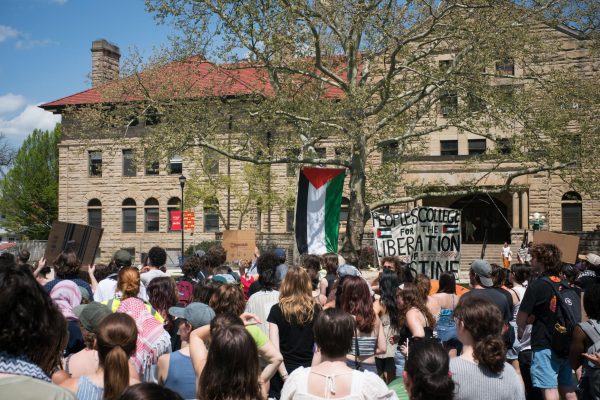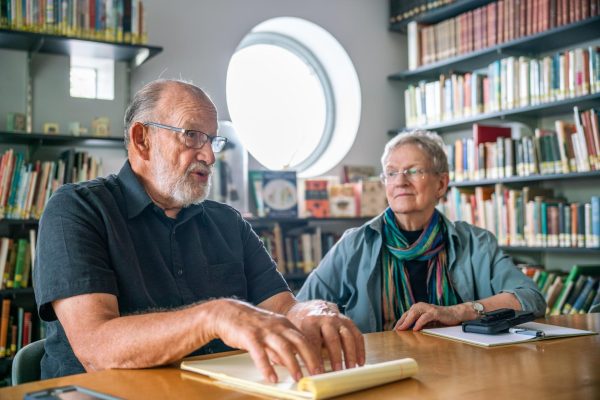Green EDGE Fund Fridge Project to Start Mid-April
The community fridge may be located near the back patio of the Oberlin Public Library.
For the past several months, College fourth-year Anokha Venugopal and third-year Charlotte Spence have been working with the Green EDGE Fund to create a community fridge to serve and be stocked by the broader Oberlin community of College students and residents. The fridge is set to open for use mid-April. Community fridge programs have popped up throughout the United States as part of grassroots responses to food insecurity since the early days of the pandemic.
Community fridges serve as a free system where members of the community are asked to “take what you need, leave what you can.” In this way, they ideally operate on non-judgmental, honor system principles. Venugopal and Spence hope that the fridge will be regularly stocked and cleaned by a network of student and community member volunteers.
The community fridge project will supplement existing free and affordable food options in Oberlin, such as those provided by Oberlin Community Services. OCS is a public service organization located on South Professor Street. It already offers 10 different food programs including drive-up food distributions and pop-up pantries, as well as programs at Oberlin City Schools. Although OCS is not officially affiliated with the community fridge, Food Programs Coordinator Liv Hanson is excited about Spence and Venugopal’s initiative.
“I think it has the capability to fill a real gap, especially around timing, where OCS is only open nine to five on weekdays,” Hanson said. “A community fridge, at least in theory, might be open 24 hours a day. It would be reaching people who might not be able to get to us.”
The fridge will consist of a pantry to hold dry foods and household items and a refrigerator that will have fresh groceries. These resources will be completely free, and the fridge will be available 24/7 to anyone who needs it.
According to a VOX article about community fridges, “Although official data is not yet available, Feeding America estimated that the number of food-insecure Americans almost doubled to 50 million people in 2020.” Being food insecure means that they faced, per VOX, “the uncertainty of having, or [being] unable to acquire, enough food due to insufficient money or other resources.”
Oberlin has a 19.41 percent poverty rate, compared to 11.6 percent nationally. Due to rising inflation and the dissipation of public benefits from COVID-19, such as EBT funds and SNAP benefits, members of the Oberlin community are struggling to make ends meet. Further, food stamp benefits will significantly decrease at the start of March.
“Food insecurity exists at the heart of environmentalism, as it is something that disproportionately impacts socio-economically disadvantaged people, often people of color,” Venugopal wrote in an email to the Review. “Within Oberlin specifically, food access is incredibly limited. The primary grocery stores available within the town are IGA and Walmart. For those who lack cars, these are inaccessible locations.”
According to Hanson, the amount of people who require food services is increasing as a result of economic inequities exacerbated by the pandemic. With this increase comes a rising need for services such as the community fridge and those OCS provides.
“There are some people who are going from almost $200 food stamps down to like 50 bucks a month,” Hanson said. “How far is $50 a month gonna really go at the grocery store right now? On top of what was already a high rate of poverty, food insecurity, economic insecurity, we’re seeing people lose a lot of lifelines that they were relying on.”
Venugopal and Spence are considering a potential location next to the back patio of the Oberlin Public Library. The fridge might take this central location to combat the aforementioned transportation challenges. They aim to not replicate or take away from any of the work that OCS does. Rather, they believe that the fridge can act as an added resource for food rescue in Oberlin, especially for those in immediate need.
“A community fridge could act as an intermediary for this issue — for both Oberlin students and community members to access in a way that is both public and private and may reduce associated discomfort with the visibility needing food aid,” Venugopal wrote.
People can donate to the fridge in different forms: unused groceries, toiletries, cleaning products, or kitchen supplies; money that volunteers can use to stock the fridge; or volunteer time. They hope to eventually partner with local restaurants and businesses to stock the fridge with food that would otherwise be thrown away.


